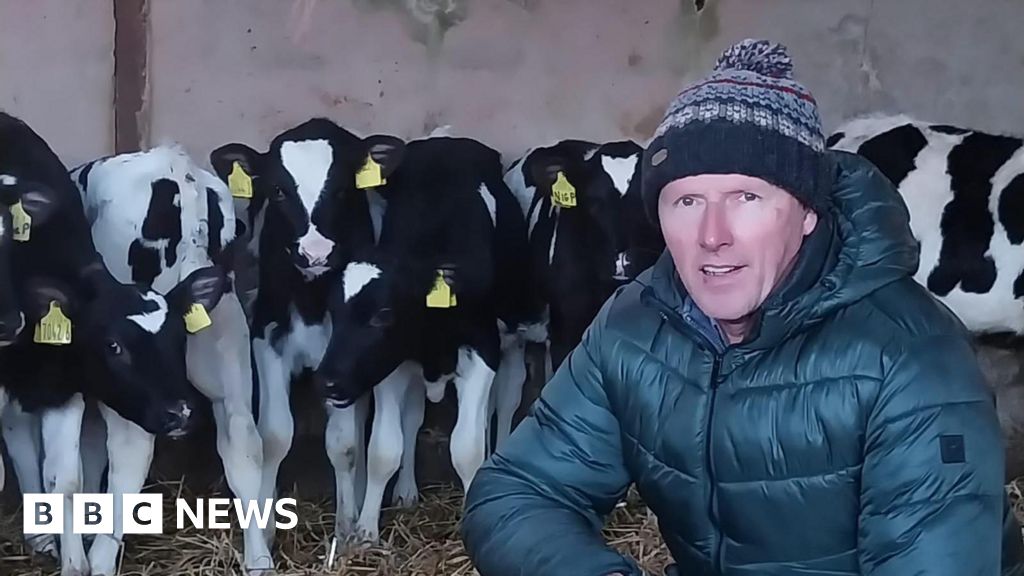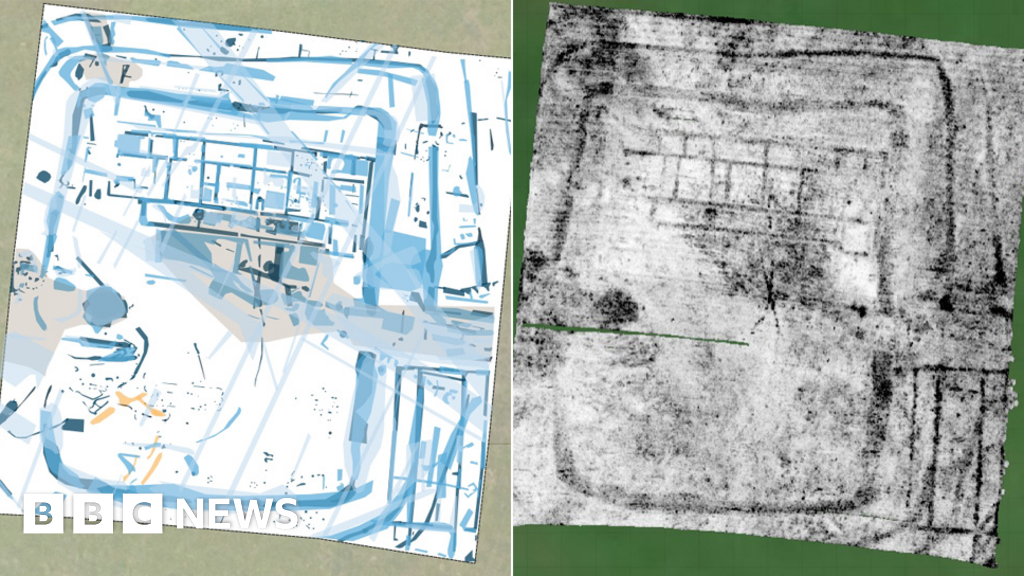
 BBC
BBCListen to this article on BBC Sounds
There are some scientific discoveries that do much more than advance our knowledge: they create a shift in our psyche as they show us the scale of the Universe and our place in it.
One such moment was when space craft sent back images of the Earth for the first time. Another is the discovery of life on another world, a moment that has inched a little closer today with the news that signs of a gas, which on Earth is produced by simple marine organisms, has been found on a planet called K2-18b.
Now, the prospect of really finding alien life – meaning we are not alone in the Universe – is not far away, according to the scientist leading the team that made the detection.
“This is basically as big as it gets in terms of fundamental questions, and we may be on the verge of answering that question,” says Prof Nikku Madhusudhan of the Institute of Astronomy at Cambridge University.
But all of this prompts even more questions, including, if they do find life on another world, how will this change us as a species?
Flying saucers and sci-fi aliens
Our ancestors have long created stories of beings that might dwell in the skies. In the early 20th Century, astronomers thought they could see straight line features on the Martian surface, raising speculation that one of our nearest planets might be home to an advanced civilisation: an idea that spawned a wealth of pulp science fiction culture involving flying saucers and little green aliens.
It was during an era when western governments generated fear of the spread of communism, so visitors from outer space were more often than not portrayed as menaces, bringing peril rather than hope.
But decades on, what has been described as “the strongest evidence yet” of life on another world has come, not from Mars or Venus, but from a planet hundreds of trillions of miles away orbiting a distant star.
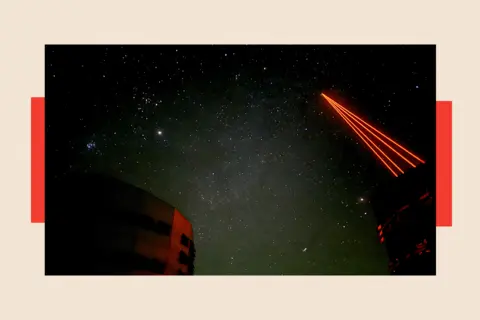 Reuters
ReutersPart of the challenge when it comes to researching the existence of alien life is knowing where to look.
Until relatively recently, the focus for Nasa’s search for life was Mars, but that began to change in 1992 with the discovery of the first planet orbiting another star outside of our solar system.
Although astronomers had suspected that there were other worlds around distant stars there had been no proof until that point. Since then, nearly 6,000 planets outside our solar system have been discovered.
Many are so-called gas giants, like Jupiter and Saturn in our solar system. Others are either too hot or too cold to support liquid water, thought to be essential for life.
But many are in what astronomers call “The Goldilocks Zone” where the distance is “just right” to support life. Prof Madhusudhan believes there could be thousands in our galaxy.
Breathtakingly ambitious tech
As these so-called exoplanets were being discovered, scientists began to develop instruments to analyse the chemical composition of their atmospheres. Their ambition was breathtaking, some would say audacious.
The idea was to capture the tiny amount of starlight glancing through the atmospheres of these faraway worlds and study them for chemical fingerprints of molecules, which on Earth can only be produced by living organisms, so-called biosignatures.
And they succeeded in developing such instruments for ground and space-based telescopes.
Nasa’s James Webb Space Telescope (JWST), which detected the gas on the planet called K2-18b in this week’s discovery, is the most powerful space telescope ever built and its launch in 2021 generated excitement that the search for life was at long last within humanity’s grasp.
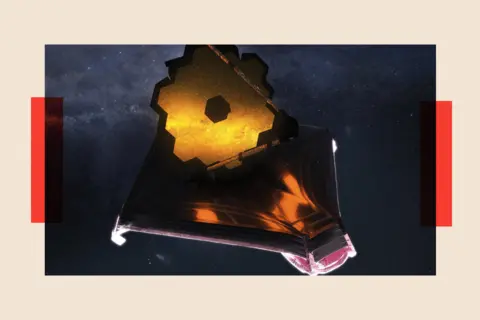 NASA
NASABut JWST has its limits – it can’t detect faraway planets as small as ours or as close to their parent stars, because of the glare. So, Nasa is planning the Habitable Worlds Observatory (HWO), scheduled for the 2030s, which will be able to spot and sample the atmospheres of planets similar to our own. (This is possible using what is effectively a high-tech sunshield that minimises light from the star which a planet orbits.)
Also coming online later this decade is the European Southern Observatory (ESO)’s Extremely Large Telescope (ELT), which will be on the ground, looking up at the crystal-clear skies of the Chilean desert.
It has the largest mirror of any instrument built, 39-metres in diameter, and so can see vastly more detail at planetary atmospheres than its predecessors.
More discoveries, more questions
Prof Madhusudan, however, hopes to have enough data within two years to demonstrate categorically that he really has discovered the biosignatures around K2-18b. But even if he does achieve his aim, this won’t lead to mass celebrations about the discovery of life on another world.
Instead, it will be the start of another robust scientific debate about whether the biosignature could be produced by non-living means.
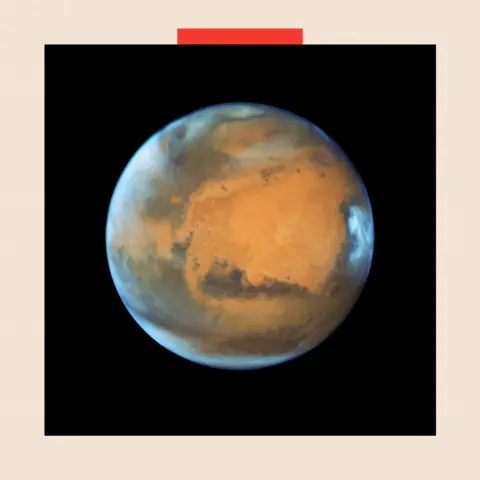 Reuters
ReutersEventually though, as more data is gathered from more atmospheres and as chemists fail in finding alternative explanations for biosignatures, the scientific consensus will slowly and gradually shift towards the probability that life does exist on other worlds, according to Prof Catherine Heymans, from Edinburgh University, who is Scotland’s Astronomer Royal.
“With more time on telescopes, astronomers will get a clearer vision of the chemical compositions of these atmospheres. You won’t know that it’s definitely life. But I think the more data that’s built up, and that if you see this in multiple different systems, not just this one particular planet, it gives us more confidence”.
The world wide web emerged in a series of incremental technological breakthroughs that didn’t necessarily feel of enormous consequence at the time.
In similar fashion, it may dawn on people that possibly the most enormous scientific, cultural and social transformation in the whole of human history has happened, but that the moment the balance was tipped in terms of there being other life out there was not fully recognised at the time.
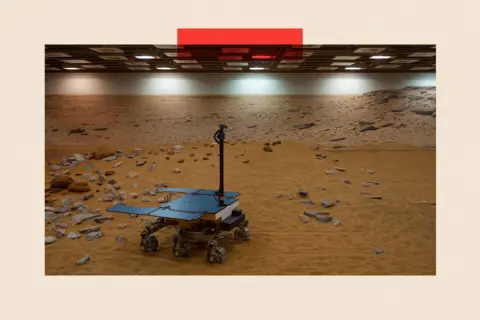 Getty Images
Getty ImagesA much more definitive discovery would be to discover life in our own solar system using robotic space craft containing portable laboratories. Any off-world bug could be analysed, possibly even brought back to Earth, providing prima facie evidence to at least significantly limit any scientific push back that may ensue.
The scientific case for the possibility of life or past life in our own solar system has increased in recent years following data sent back by various spacecraft, so several missions to search for signs of it are on their way.
The European Space Agency’s (ESA) ExoMars rover, planned for launch in 2028, will drill below the surface of Mars to search for signs of past and possibly present life. Given the extreme conditions on Mars, however, the discovery of fossilised past life is the more likely outcome.
China’s Tianwen-3 mission, also planned for launch in 2028 is designed to collect samples and bring them back to Earth by 2031. Nasa and ESA each have spacecraft on their way to the icy moons of Jupiter to see if there may be water, possibly vast oceans, under their icy surfaces.
 NASA/ Reuters
NASA/ ReutersBut the spacecraft are not designed to find life itself. Instead, these missions lay the ground for future missions which will, according to Prof Michele Dougherty of Imperial College, London.
“It is a long, slow process,” she says. “The next decision to make would be a lander, which moon it goes to, and where we should be landing.
“You don’t want to land where the ice crust is so thick that there is no way you can get underneath the surface. And so, it’s a long, slow burn, but it’s pretty exciting en route”.
Nasa is also sending a spacecraft called Dragonfly to land on one of the moons of Saturn, Titan in 2034. It is an exotic world with what are thought to be lakes and clouds made from carbon-rich chemicals which give the planet an eerie orange haze, bringing The Beatles‘ song, Lucy in the Sky with Diamonds to mind: a world with “marmalade skies”.
Along with water these chemicals are thought to be a necessary ingredient for life.
Prof Dougherty is one of the leading planetary scientists in her field. Does she think there is life on one of the icy Moons of Jupiter or Saturn?
“I’d be very surprised if there wasn’t,” she says, beaming with delight.
“Three things are required: a heat source, liquid water and organic (carbon-based) chemicals. If we have those three ingredients, the chances that life is able to form rises really steeply.
Reducing human ‘specialness’
If simple life forms are found to exist that is no guarantee that more complex life forms are out there.
Prof Madhusudhan believes that, if confirmed, simple life should be “pretty common” in the galaxy. “But going from that simple life to complex life is a big step, and that is an open question. How that step happens? What are the conditions that govern that? We don’t know that. And then going from there to intelligent life is another big step.”
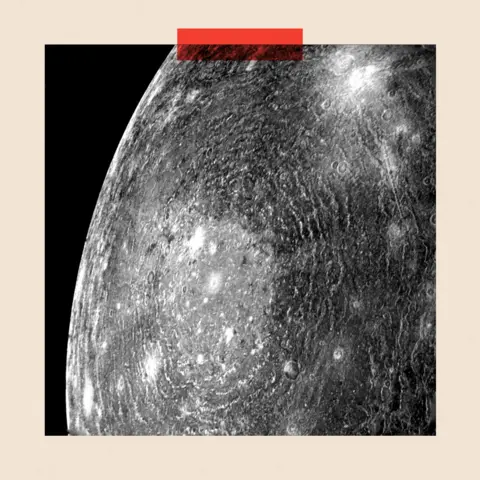 NASA
NASADr Robert Massey, who is the deputy executive director of the Royal Astronomical Society, agrees that the emergence of intelligent life on another world is much less likely than simple life.
“When we see the emergence of life on Earth, it was so complex. It took such a long time for multi-cellular life to emerge and then evolve into diverse life forms.
“The big question is whether there was something about the Earth that made that evolution possible. Do we need exactly the same conditions, our size, our oceans and land masses for that to happen on other worlds or will that happen regardless?”
He believes that the discovery of even simple alien life would be the latest chapter in the diminution of humanity’s place in the cosmos.
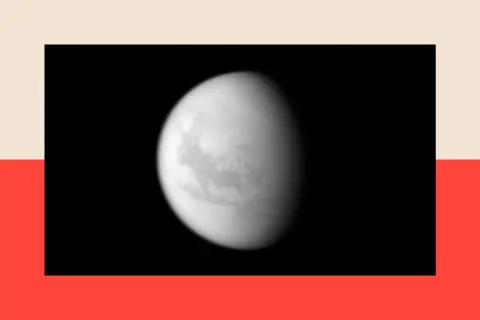 NASA
NASAAs he puts it, centuries ago, we believed we were at the centre of the Universe and with each discovery in astronomy we have found ourselves “more displaced” from that point. “I think the discovery of life elsewhere it would further reduce our specialness,” he says.
Prof Dougherty, on the other hand, believes that such a discovery in our own solar system would be good for science, and good for the soul.
“The discovery of even simple life will allow us a better understanding about how we might have evolved way back those millions of aeons ago when we first evolved. And so, for me, it’s helping us find our place in the Universe.
“If we know there is life, elsewhere in our solar system and potentially beyond, [this] would somehow be comforting to me, knowing that we’re a fabric of something larger will make us bigger”.
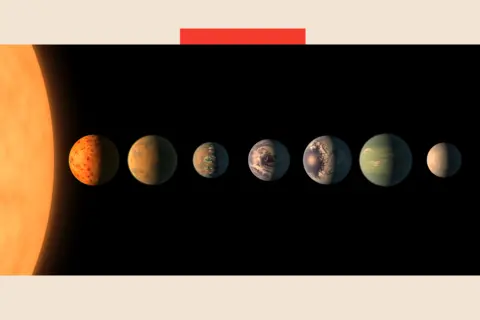 NASA
NASANever before have scientists searched so hard for life on other worlds and never before have they had such incredible tools to do this with. And many working in the field believe that it is a matter of when, rather than if, they discover life on other worlds. And rather than bringing fear, the discovery of alien life will bring hope, according to Prof Madhusudhan.
“When we would look at the sky, we would see not just physical objects, stars and planets, we would see a living sky. The societal ramifications of that are immense. It will be a huge transformational change in the way we look at ourselves in the cosmic scene.
“It will fundamentally change the human psyche in how we view ourselves and each other, and any barriers, linguistic, political, geographical, will dissolve, as we realise we are all one. And that will bring us closer,” he continues.
“It will be another step in our evolution”.
Top picture credit: Getty Images
BBC InDepth is the home on the website and app for the best analysis, with fresh perspectives that challenge assumptions and deep reporting on the biggest issues of the day. And we showcase thought-provoking content from across BBC Sounds and iPlayer too. You can send us your feedback on the InDepth section by clicking on the button below.













